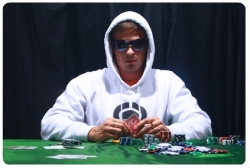How To Guess Your Opponents’ Hands And Win
 If you are an avid gambler you have probably already enjoyed online poker and other online casino games, but nothing is like live poker action, and if you are about to play poker at a real table, then it suffices to say that what can constitute a great advantage against the other players is that you know how to guess their hands and use that information to win. Granted, deducting the strength of the hand from the players’ physical reaction is not easy at first. However, rest assured that you will get better at this with time and you will be able to read the other players’ tell tale signs more often, an edge that will have a positive impact on your winning streak.
If you are an avid gambler you have probably already enjoyed online poker and other online casino games, but nothing is like live poker action, and if you are about to play poker at a real table, then it suffices to say that what can constitute a great advantage against the other players is that you know how to guess their hands and use that information to win. Granted, deducting the strength of the hand from the players’ physical reaction is not easy at first. However, rest assured that you will get better at this with time and you will be able to read the other players’ tell tale signs more often, an edge that will have a positive impact on your winning streak.
Even though some players are better actors than others at the table, certain reactions, tics and habits are usually hard to overcome and you can detect them by paying a little attention to your opponents. Let’s elaborate.
Recognizing a drawing hand
The simplest way to discover whether a player has a drawing hand is by paying attention to the time he takes before calling a bet. The situation becomes even clearer when the poker player seems to use that time in order to calculate things in his head. Simply put, your opponent is computing the odds that the desired cards will actually “come”.
Another indicator that he might have a drawing hand implies that he takes the time to check and re-check the board after a flop. Keep in mind that if he had a strong hand, he would not have to check the table again.
Detecting a weak hand
It is funny but most beginners and amateurs have a tendency of holding their breath when they have a weak hand, since that is the easiest way to refrain from showing any reaction when they are bluffing. A further sign that a player at your table has nothing or a hand that can be beaten is when he starts staring down and analyzing the other players in an attempt to intimidate them.
Spotting a good hand
More often than not, when a beginner has a good hand you will notice him complaining about it, thinking out loud that he should fold and acting totally uninterested and unimpressed by it. Yet, he continues betting and raising, since after all the aforementioned complaints are nothing more than a way to exteriorize the excitement.
Because vocalizing will practically give away their hand, some players refrain from saying anything when they got a good hand. Instead, they show various physical signs such as shaking hands, rapid breathing and an uncontrollable desire to look back and forth at the cards and chips.

 If you are looking for a game that offers the best possible odds and the most significant edge, you should get to know online Texas Holdem. At
If you are looking for a game that offers the best possible odds and the most significant edge, you should get to know online Texas Holdem. At
Leave a Reply